USA Students, Faculty, Staff and Community Join in Campus Garden
Posted on June 22, 2016 by Alice Jackson
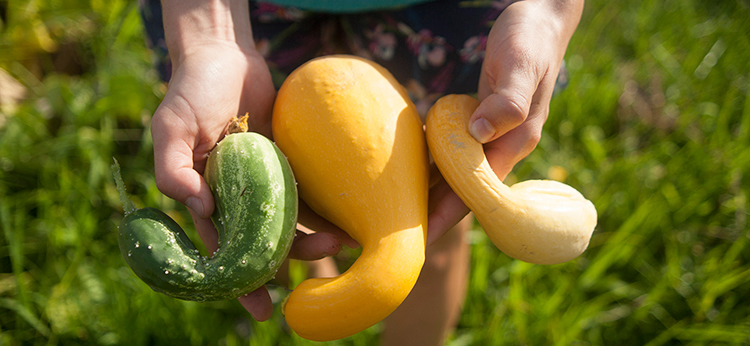
The farm-to-table movement is plowing along and growing on the University of South Alabama campus, thanks to South students committed to sustainability and University-wide support.
At least one day a month, the USA Sustainability Council, a student organization dedicated to promoting environmental initiatives on campus, seeks volunteers to work in a campus garden, dubbed the Food Bayou, which is bigger and contains more produce than the average residential plot. Besides the usual assortment of vegetables -- okra, tomatoes, carrots, peppers – there’s also fruit trees, including apple, pear, and fig, along with blueberry bushes. A variety of herbs are also included in the mix.
On a recent Friday evening, volunteers of varying ages weeded, raked and watered while others installed fence posts and wire to completely enclose the space, located off Cleverdon Parkway on the campus’ west side. The fence will help protect the garden from pesky wildlife.
Like many home gardeners, the students utilize some raised beds in addition to row planting
“A group from AmeriCorps and Vista helped us start the garden last year as one of their projects, and we planted our first crop, but it was our trial run,” said Angela McGaugh, a biomedical sciences major from Pensacola, Fla., and president of the Sustainability Council. “One of our biggest problems was the soil, which has a lot of clay in it, but we’re composting to make it better.”
The University’s food recycling program is dedicated to diverting waste from the campus solid waste system and landfill. For this reason, students, faculty, and community members can deliver their food waste to a composting drop-off located at the garden. The resulting composted soil will be used in the garden.
Food Bayou shuns the use of synthetic fertilizers and pesticides, opting for an assortment of organic and sustainable food-growing practices. The produce is donated to the Salvation Army or given to students, faculty and community members who volunteer.
The garden was a challenging project to launch for McGaugh and Justin Roberts, a Mobile resident and graduate student in biology, who will begin work on his doctorate this fall.
“Last year’s trial run was really rough with all the rain, followed by the high temperatures, but it helped us figure out how much food we thought we could produce this year,” Roberts said.
The students have actively sought grants for Food Bayou, and the Pollination Project Foundation gave them $1,000 to develop an outdoor classroom.
“As the outdoor classroom comes along, it can be used for any kind of community workshop, or a learning lab for courses such as botany, biology or life sciences,” McGaugh explained.
Like the University, Food Bayou aims to engage students and the community through educational workshops, community outreach and research.
“It’s hard to get people to turn out on a Friday afternoon to work hard in a garden, but here we all are,” McGaugh said. “We’ve grown from last year, and next year, hopefully, Food Bayou will grow even more. This will be a nice legacy for South.”
To participate in the composting program, or to volunteer for work in the garden, email sustainability@southalabama.edu.
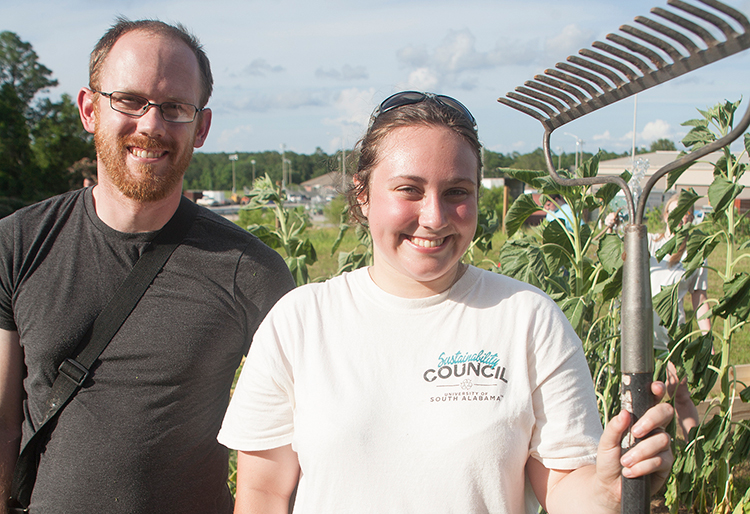 Students Justin Roberts, left, and Angela McGaugh, actively promote a variety of sustainability
projects on campus.
Students Justin Roberts, left, and Angela McGaugh, actively promote a variety of sustainability
projects on campus.
-

Every Bottle Back
In an effort to encourage recycling on campus, we partnered with our f...
November 9, 2021 -
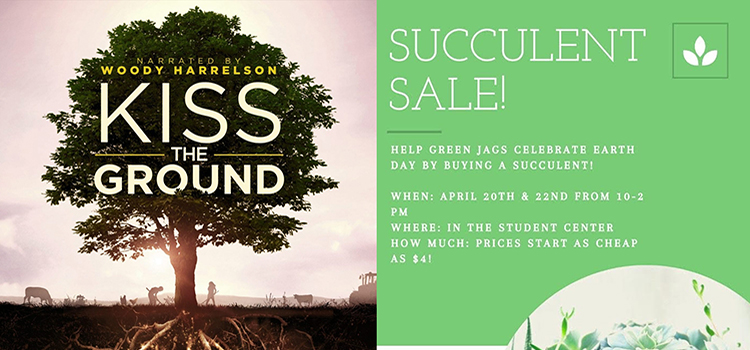
Celebrate Earth Day 2021
Gulf Coast Creation Care, the Mobile Public Library and the Crescent T...
April 12, 2021 -
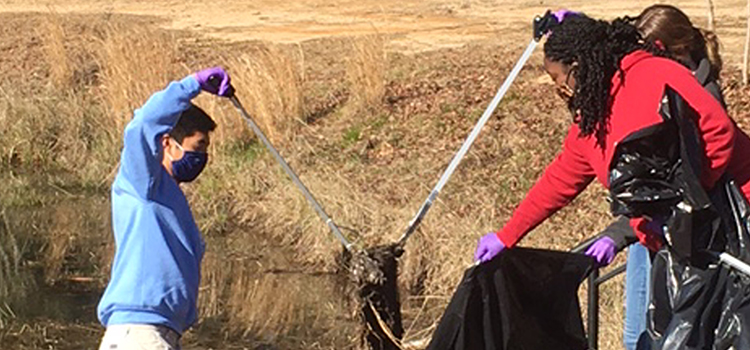
Clean Up Day
Thanks to the SGA and others for participating in Clean Up Day on Febr...
February 23, 2021 -
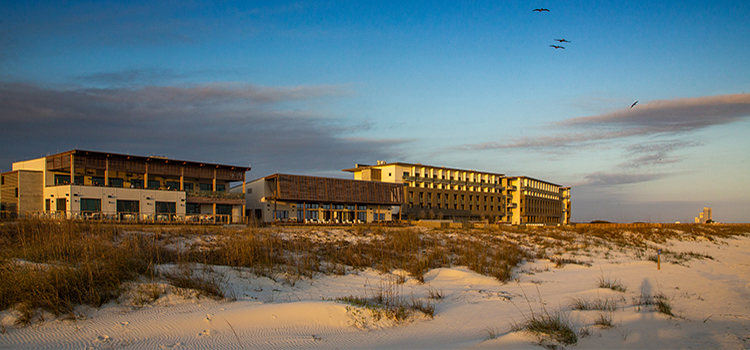
Guest Speaker on Sustainable Tourism
Guest Speaker Chandra Wright will be discussing Sustainable Tourism an...
April 9, 2019


